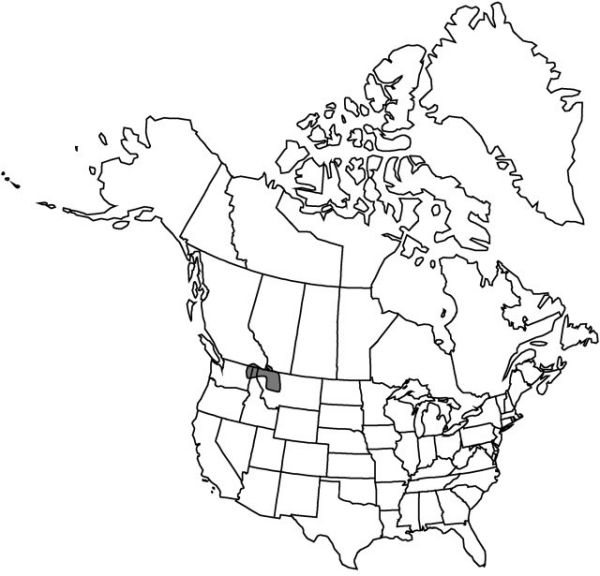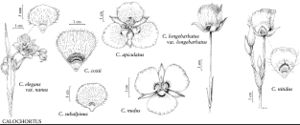Difference between revisions of "Calochortus apiculatus"
J. Linn. Soc., Bot. 14: 305. 1874.
imported>Volume Importer |
imported>Volume Importer |
||
| Line 52: | Line 52: | ||
|publication year=1874 | |publication year=1874 | ||
|special status=Illustrated;Endemic | |special status=Illustrated;Endemic | ||
| − | |source xml=https:// | + | |source xml=https://bitbucket.org/aafc-mbb/fna-data-curation/src/2e0870ddd59836b60bcf96646a41e87ea5a5943a/coarse_grained_fna_xml/V26/V26_163.xml |
|genus=Calochortus | |genus=Calochortus | ||
|species=Calochortus apiculatus | |species=Calochortus apiculatus | ||
Latest revision as of 21:13, 5 November 2020
Stems usually not branching, straight, scapelike, stout, 1–3 dm. Leaves: basal 1–3 dm × 5–15 mm, usually shorter than stem. Inflorescences subumbellate, 1–5-flowered; bracts 2–several, lanceolate to linear, unequal, 1–5 cm, apex acuminate; peduncle stout, becoming strongly deflexed in fruit. Flowers erect or spreading; perianth yellowish white, sometimes streaked with purple, open, campanulate; sepals shorter than petals; petals oblong-lanceolate, clawed, adaxial surface densely hairy, margins fringed laterally and moderately bearded on proximal 1/2 distal to claw with slender, flexuous hairs, apex acute or obtuse; glands short, nearly round, depressed, typically bordered proximally by dark-colored, deeply fringed membrane, adaxial surface covered with short, thick hairs; filaments shorter than or equaling anthers; anthers lanceolate, apex long-apiculate. Capsules nodding, 3-winged, ellipsoid, apex acute. Seeds light brown, irregular. 2n = 20.
Phenology: Flowering summer.
Habitat: Dry, rocky slopes in open, coniferous woods
Elevation: 600–2400 m
Distribution

Alta., B.C., Idaho, Mont., Wash.
Discussion
Selected References
None.
